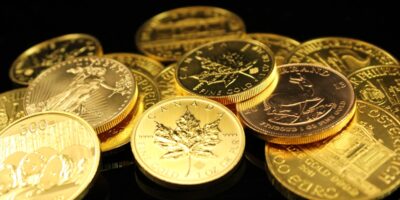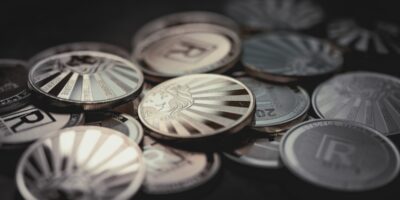Numismatics Near Me
Numismatics Near Me
Numismatics, the study or collection of currency, offers a deep dive into history through the lens of coins, paper money, and medals. Collectors and enthusiasts find joy in discovering pieces that tell stories of the past. If you’re keen to explore numismatics in your local area, there are several avenues to start your journey.
Local Numismatic Societies

Numismatic societies are often the best place to begin. These groups bring together individuals with a shared passion for coin collecting. They offer a wealth of knowledge and resources. Many societies hold regular meetings, allowing members to exchange coins, share insights, and discuss trends.
- The American Numismatic Association (ANA) offers a directory of local clubs.
- Some societies offer courses and certifications on numismatic topics.
Joining a local society also grants access to a network of experienced collectors. This can be invaluable for both new and seasoned numismatists. Society events often feature guest speakers and workshops, providing further education and engagement opportunities.
Local Coin Shops
Coin shops are a treasure trove for collectors. They often carry a wide range of currencies, from rare coins to common collectibles. Shop owners usually possess extensive knowledge and can offer appraisals, buying, and selling advice.
- Many shops have regular clients and host small events or auctions.
- They might offer services like coin grading and authentication.
Visiting a coin shop also allows collectors to physically inspect the coin before purchase. This hands-on experience is crucial for assessing the condition and authenticity of the currency. It’s also an excellent way to meet others in the local numismatic community.
Coin Shows and Expos
Coin shows provide a larger platform for numismatic exchange. These events gather collectors, dealers, and experts under one roof. Attendees can browse through extensive collections, attend seminars, and participate in auctions.
- The ANA hosts major coin shows annually across the country.
- Local shows can be found through event listings and numismatic associations.
Coin shows offer a dynamic environment filled with opportunities for buying, selling, and learning. Exhibitors display a vast range of items, making it an exciting prospect for collectors looking to expand their collections.
Libraries and Museums
Your local library or museum could be an untapped resource. Many institutions hold numismatic collections that are available for public viewing. Museums sometimes feature exhibits on monetary history.
- Check with the library for books and catalogs on numismatics.
- Look for special exhibitions and permanent coin collections in museums.
These resources can deepen your understanding of the historical context behind the coins. Educational programs and lectures at these venues may also provide additional insights into the cultural significance of different currencies.
Online Platforms and Communities
While exploring your locality, don’t overlook the power of online platforms. Numerous websites and forums cater to numismatics enthusiasts. These platforms allow for knowledge exchange, buying, selling, and even virtual meetups.
- Websites like CoinTalk and Collectors Universe are popular among collectors.
- Online marketplaces like eBay and Heritage Auctions offer extensive listings.
Engaging with online communities can supplement your local numismatic activities. These platforms provide access to a global network, broadening the scope of your collection. They also offer forums where you can seek advice or share your knowledge.
Educational Institutions
Universities and colleges sometimes have numismatic programs or clubs. These institutions are excellent resources for scholarly information on the subject. Some may even house significant collections.
- Check university libraries for numismatic literature and research papers.
- Join student organizations or clubs focused on history and numismatics.
Educational institutions can provide a more theoretical and formal understanding of numismatics. Collaborating with academia may open doors to rare resources and advanced studies.
Local Flea Markets and Antique Shops
Flea markets and antique shops often have hidden gems. These venues can be hit-or-miss, but the thrill of finding a valuable piece can be worth the effort. Prices here can be more negotiable compared to specialized shops.
- Explore local listings for flea market events and antique fairs.
- Build relationships with vendors for potential tips on rare finds.
Patience is key when scouring these spots. The unpredictability adds an element of excitement to numismatic hunting. Over time, you may develop an eye for identifying items of worth.
Networking and Word of Mouth
Personal connections can lead to unexpected opportunities in numismatics. Networking through friends, co-workers, or community members may uncover leads on collections for sale or trade.
Sharing your interest in numismatics can prompt others to reveal their own or direct you to someone who shares the same passion. Sometimes, older collections are hidden away in attics and basements, waiting to be discovered.
Local Historical Societies
Historical societies often engage with local history enthusiasts, including numismatists. These organizations can introduce you to broader aspects of your area’s history, which often links to its monetary past.
- Attend meetings and events hosted by historical societies.
- Research their archives for numismatic materials.
Historical societies provide context and narratives that enrich the numismatic experience. Their resources may include documents, photographs, and artifacts relevant to your collections.
Professional Appraisers and Dealers
Consulting a professional appraiser or dealer can provide an expert assessment of your collection’s value. Professionals bring certification and years of experience to the table, ensuring accurate evaluations.
- Look for certified members of organizations like the American Society of Appraisers.
- Research reviews and credentials before choosing an appraiser.
Professional appraisers can also help with buying and selling strategies, giving you a competitive edge in the numismatic market. Their insights can guide decisions regarding restoration, conservation, and investment.
Community Centers and Local Events
Community centers sometimes host hobby groups or events that include numismatic activities. These gatherings are ideal for meeting like-minded individuals in your area.
- Check flyers and community boards for upcoming events.
- Participate in local hobby fairs or trade shows.
Engaging in community events fosters local connections and keeps you informed about numismatic opportunities. These centers often serve as hubs for shared interests, facilitating collaboration and knowledge sharing.
Pawn Shops
Pawn shops are another potential source for numismatic items. These shops accept various forms of currency, and occasionally rare coins and notes make their way into their inventory.
- Frequent local pawn shops to check for new arrivals.
- Negotiate prices to get the best deals.
Pawn shops offer unique finds at competitive prices. It’s a good idea to build a rapport with the shop owners, as they might inform you when items of interest come in.
Craigslist and Local Online Marketplaces
Local online marketplaces like Craigslist can be a goldmine for numismatists. People often sell old collections without knowing their true value, providing opportunities for great deals.
- Regularly browse the Collectibles section for new listings.
- Set up alerts for specific searches to get notified about new postings.
Online marketplaces allow you to negotiate prices directly with sellers. Meet-ups for exchanges should always be done in public places for safety. These platforms expand your reach, enabling you to find items not available in local stores or events.
Estate Sales and Auctions
Estate sales are excellent venues for acquiring coins from private collections. These sales occur when someone liquidates their belongings, often including valuable coins and currency.
- Find estate sales through websites like EstateSales.net.
- Attend regularly and build connections with estate sale companies.
Auctions are also a valuable resource. Local auction houses may conduct specialty auctions focusing on numismatics. Bidding at auctions can be competitive, but it’s a great way to add rare pieces to your collection.



